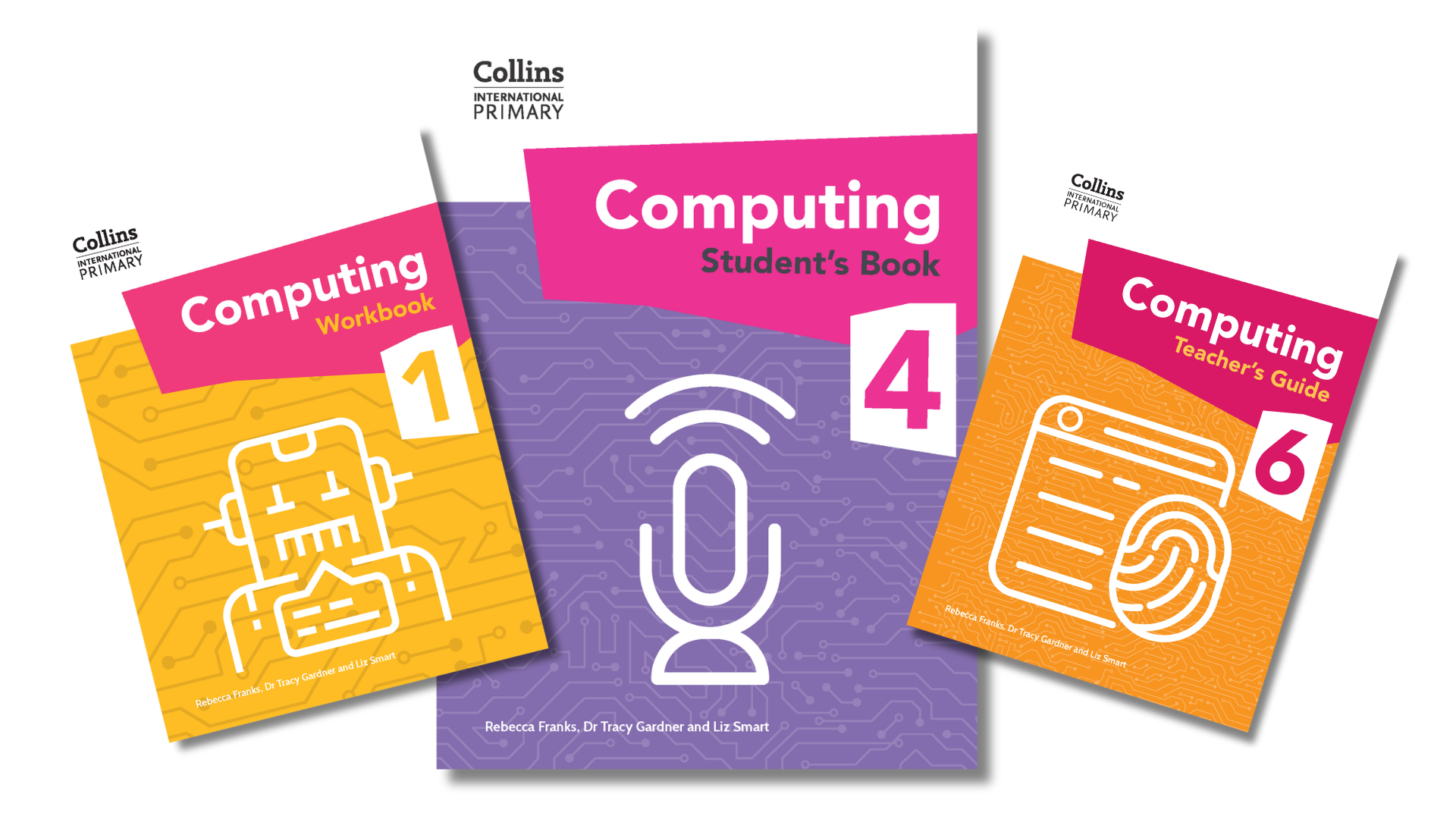
Shaping the Future of Computing Education for All Learners
After more than a year of careful development, we are excited to unveil the Collins Primary and Lower Secondary Computing book series by Flip Computing. Crafted with an inclusion-first approach, this series goes beyond simply teaching computing—it ensures that every learner has the opportunity to develop essential digital skills in an engaging, personalised, and collaborative way. These books offer a transformative learning experience that is robust, comprehensive, and creatively stimulating.
A Curriculum for the Modern World
Aligned with Excellence, Designed for Every Learner
Our curriculum is aligned with, though not officially endorsed by, both the Cambridge Computing and Digital Literacy curricula, providing a broad range of knowledge and skills starting from Stage 1 (Year 1). From foundational digital literacy to advanced computing concepts, each stage is thoughtfully designed to equip young learners with the tools they need to succeed in the digital age.
Grounded in Pedagogical Excellence
Research-Informed Teaching for Inclusive Classrooms
At the heart of our curriculum is a commitment to inclusivity. We have drawn on the latest educational research to create a teaching approach that fosters a more inclusive learning experience for underestimated groups in technology. Each unit is meticulously crafted to blend essential knowledge with skill development, culminating in creative final projects that encourage learners to make meaningful design choices.
Every lesson plan highlights the key pedagogical strategies used, ensuring that teachers can effectively guide learners through their computing journey. Here are some of the innovative approaches we have integrated:
- Classroom Talk: Encouraging dialogue to deepen understanding.
- Design Thinking: Cultivating creativity and problem-solving skills.
- Parsons Problems: Enhancing coding skills through guided exercises.
- Showcasing: Building confidence through presentations and peer feedback.
- Unplugged Activities: Teaching computing concepts without a computer.
- Physical Computing: Bringing code to life with hands-on projects.
- Real-World Context: Connecting learning to real-world applications.
- Cultural relevance: Leaving room for personalisation to ensure that learners can make projects that meet their goals.
- Collaborative Work: Promoting teamwork and peer learning.
- Investigation: Time to develop understanding of code design patterns.
- Skill Development: Focusing on practical skills with real-world relevance.
- Building on Prior Knowledge: Ensuring a solid foundation for continuous learning.
- PRIMM (Predict, Run, Investigate, Modify, Make): A structured approach to learning programming.
Exploring Six Key Themes
Comprehensive Learning Across Core Areas of Computing
Our book series is built around six essential themes that provide a holistic approach to computing and digital literacy:
- Our Digital World: Equipping learners with the tools and knowledge to safely navigate and engage with the digital environment.
- Content Creation: Empowering learners to create impactful content using a range of digital tools, from word processing to video production.
- Create with Code: Introducing programming fundamentals and computational thinking through engaging, hands-on activities.
- How Computers Work: Demystifying the inner workings of computers and the technologies that drive them.
- Connect the World: Understanding the power of networks, the internet, and the World Wide Web.
- The Power of Data: Teaching essential skills in data collection, analysis, and presentation with a focus on real-world applications.
Transitioning with Confidence: Stage 7 and Beyond
Supporting Pupils Through Key Educational Transitions
We have also developed resources for Stage 7, ensuring a seamless transition from primary to lower secondary computing education. These books continue our inclusion-first philosophy, preparing learners for deeper study in Stage 8 and beyond.
What’s Inside: Resources for Every Learner and Teacher
Comprehensive Tools for Effective Learning and Teaching
Each stage in the series includes a complete set of resources to support both teachers and learners:
- Teacher Guide: Detailed lesson plans, assessment rubrics, and essential teaching strategies to support educators at all levels of experience.
- Student’s Book: Core content with activities and discussion prompts to deepen understanding and encourage active learning.
- Student’s Workbook: A dedicated space for learners to record their findings, complete design work, and reflect on their learning journey.
Get Ready to Inspire the Next Generation
Pre-Order Now for a September 2024 Launch
The Collins Primary and Lower Secondary Computing books are now available for pre-order. The first books for Stages 1, 3, and 7 will be released in September 2024, with the remaining stages launching throughout the autumn term. Visit our books page to secure your copies and prepare to inspire the next generation of digital innovators!

0 Comments